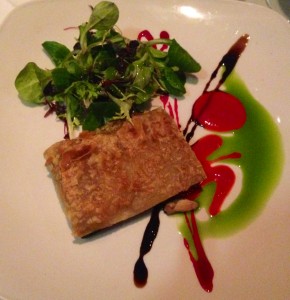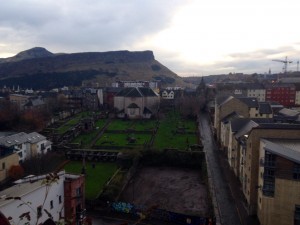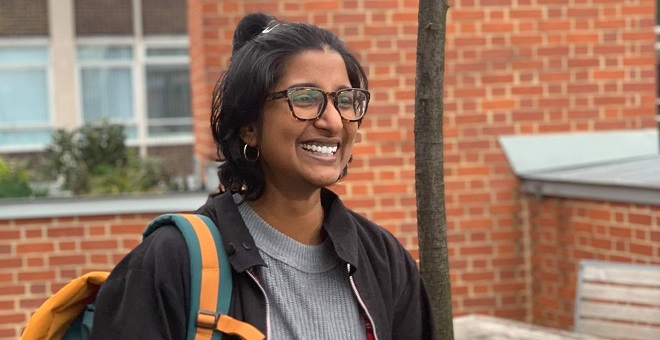Lately I’ve been lacking the inspiration to write.
You know when life acquires a new rhythm, its waves sweep you up and crash ashore into your new world? When the little voice tugging on your mind’s pinky finger, demanding that you document your experiences, slowly fades to a murmur? When, suddenly, it seems better to live out your days than to consciously narrate them?
I’ve been in the aforementioned phase for the last few weeks. Yet, here we are. You are reading my words, which must mean I’ve overcome this attitude to tell you a bit about my little heart and soul these past weeks.
Remember that essay on Charles V I was writing? It turns out I earned a First, i.e. the highest mark on the UK scale. Or how about that presentation on identity documents? It was well received by my peers and professor. I’m not normally one to publicise my academic performance, but since these were the first assignments I’ve submitted under UK and LSE standards, this was an excellent opportunity for me to realise whether or not my level of rigour and critical thinking were on par with LSE’s expectations. So far, so good.
I went to see my favorite ballerina in the world, Sarah Lamb in the Royal Ballet’s performance of ‘Chroma Mixed’. After booking my tickets in August, this evening had been long-anticipated. I dressed myself up in fancy evening-wear and walked the ten minutes to Covent Garden. I picked up my tickets and entered a world of posh, high-brow dance-lovers. Middle-aged women wore two-inch stilettos and trim tweed overcoats. The younger crowd was dressed more casually, though one young woman was adorned in a golden-shimmering gown and sparkling silver, Cinderella heels. Men wore long woollen trench coats. There was an ambiance of chatter and excitement. People dined and drank wine. The performance began and we were collectively blown away. The dancers and choreographers of the Royal Ballet are corporeal geniuses. After ‘The Rite of Spring’, the evening’s final performance, I overheard two men discussing its ‘primitive’ aura — the anthropologist in me, initially recoiled at the casual mention of the term, but soon I considered that I could never precisely know what they meant. Perhaps, they were anthropologists themselves, conscious of the word primitive‘s problematic connotations.
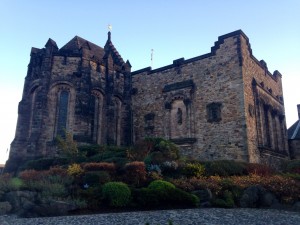
I made a quick trip to Edinburgh with the greatest travel companions on Earth, members of LSE’s Itchy Feet Society, partly to scope out the city in which I will be running my first marathon and partly because I’ve caught the travel bug and couldn’t resist another adventure with my fellow Itchy Feeters. While at the Edinburgh Castle, I learned about the historical rivalry between the English and the Scots, which holds great relevance today given the upcoming vote on Scotland’s proposal for Independence. One of the presenters at the castle, during his long-winded explanation of the ruthless fighting between the Scotsmen and Englishmen who didn’t unite until 1707, asked if anyone in the audience was from the United States. I was hesitant but nodded yes in response. Looking around to see if anyone else had responded, I noticed one other person come forward, claiming they were from Pittsburgh. The Scottish presenter, who was playing the role of an 18th century Scotsman dressed in soldier’s garb made a quick comment about how Pittsburgh was a lovely place, but swiftly turned towards me. The conversation went as follows:
“And where are you from?”
“Boston.” Here, I offered a knowing glance of mischief. Boston was the home base for the American revolution. It’s where Paul Revere took his Midnight Ride to warn the militiamen that the Redcoats were coming. Boston was meant to be ‘the city upon a hill’, and is today one of the only American cities where the historical connection to England is quite explicit.
The Scotsman replied with fervour and excitement.
“Oh, Boston?! You YANKEE! You think the Boston Massacre was bad? That was nothing — only five people died. You Bostonians — think you’re revolutionaries, but you’re nothing more than rebels, eh?!”
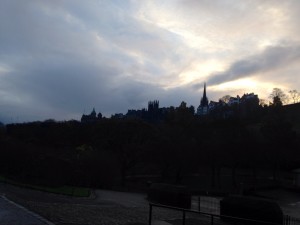
I was overjoyed! Finally, public acknowledgment of the long-time relationship between New England (the northeastern region of the United States whose cities and towns are largely named after English cities and towns) and England.
This week was also the celebration of Thanksgiving, a controversial American holiday where people feast and explicitly acknowledge the gifts of life. For some, the holiday commemorates the brutal massacre of Native Americans and should thus be less of an occasion to feast and instead a day of atonement and fasting. For me, Thanksgiving came and went. I Skyped my beautiful family members who celebrated the French way — a simplified and less patriotic version of the holiday. Aside from this, I chose not to participate in the festivities. I point you to this New York Times Article, which elaborates on some of my sentiments.
That’s all for now, until next time. x
